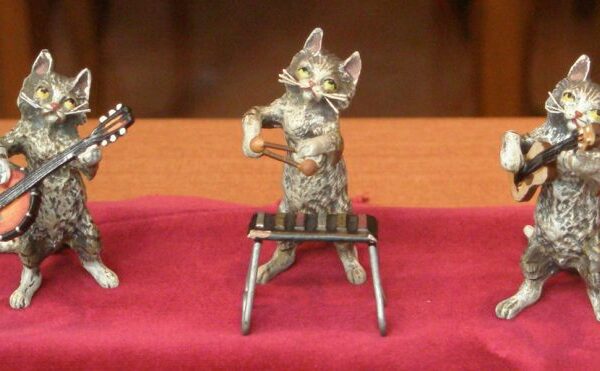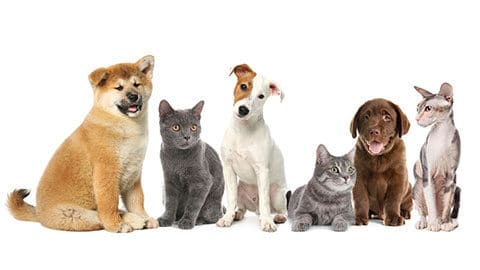
Music Specially for Kitty Cats
A few years ago, scientists from the University of Wisconsin at Madison, and the University of Maryland, wanted to study whether cats could respond to music. And so they created some music especially for feline sensibilities, as described in this article outlining the whole study. It describes how Charles Snowdon and the other researchers looked at the natural vocalizations of cats and matched music to that frequency range, which is about an octave or more higher than human voices. Upon learning that cats use sliding frequencies in their calls to each other, the team incorporated more sliding notes in the cat music composition than you’d find in human music.
In the cat music, the team replicated the tempo of things that would attract a cat’s attention --- one song featured a purring tempo, and another featured a suckling tempo. In the study, the cat songs were played back to 47 domestic cats. The researchers watched how the felines reacted to this music, compared to their response when they listened to two classical human songs --- Johann Sebastian Bach's Air on a G String and Gabriel Fauré's Elegie. Publishing in the journal Applied Animal Behavioural Science, the team reported that the cats didn't respond at all to the human music. However, when the cat music started up, the kitties became aroused and approached the speakers, often rubbing their cheek scent glands on the speakers.
It was actually several years before this university study was done that the composing team of Joshua Leeds and Lisa Spector pioneered the development of species-specific calming music. First they designed their “Through a Dog’s Ear” music series, and then followed it with their “Through a Cat’s Ear,” which was designed to have a positive calming effect for cats suffering from stress, fear, howling, loneliness and sleep disturbance. Apparently other “animal composers” have sprung up on the internet as well, selling their feline tunes online. There are many practical applications of music composed specifically for cats, one use being to play it at home for cats left alone all day. The most compelling benefit would be to play it in the cat area of a shelter, to lower the stress that cats naturally suffer there.
And thinking about the welfare of kitties in shelters, keep in mind that for every purchase you make, Halo donates a bowl of food to a shelter to help nourish and transform shelter pets with good nutrition, giving them their very best chance at a forever home. #HaloFeedItForward.
While there's now music that helps pets when they listen to it, there's also music that helps animals in a different way. Check out Halo’s jingle to benefit animal rescue (consider yourself warned, it's very hard to stop singing it!). @halopets’s Tweet
---Tracie Hotchner
(Have a comment? Share it on Facebook.)
Halo is a sponsor on Radio Pet Lady Network, by our invitation.

